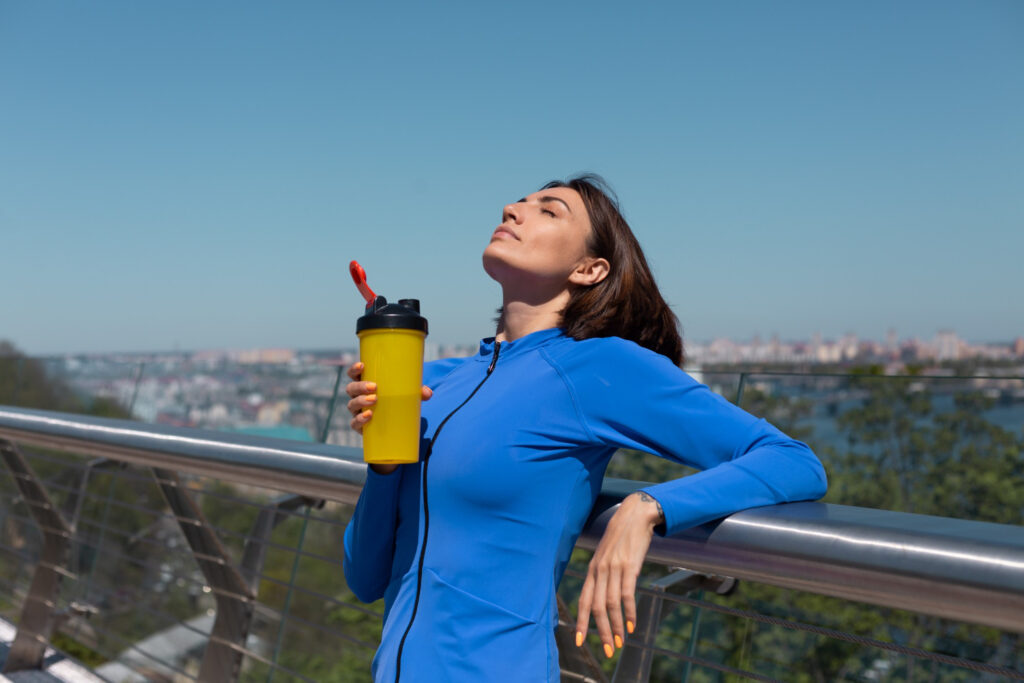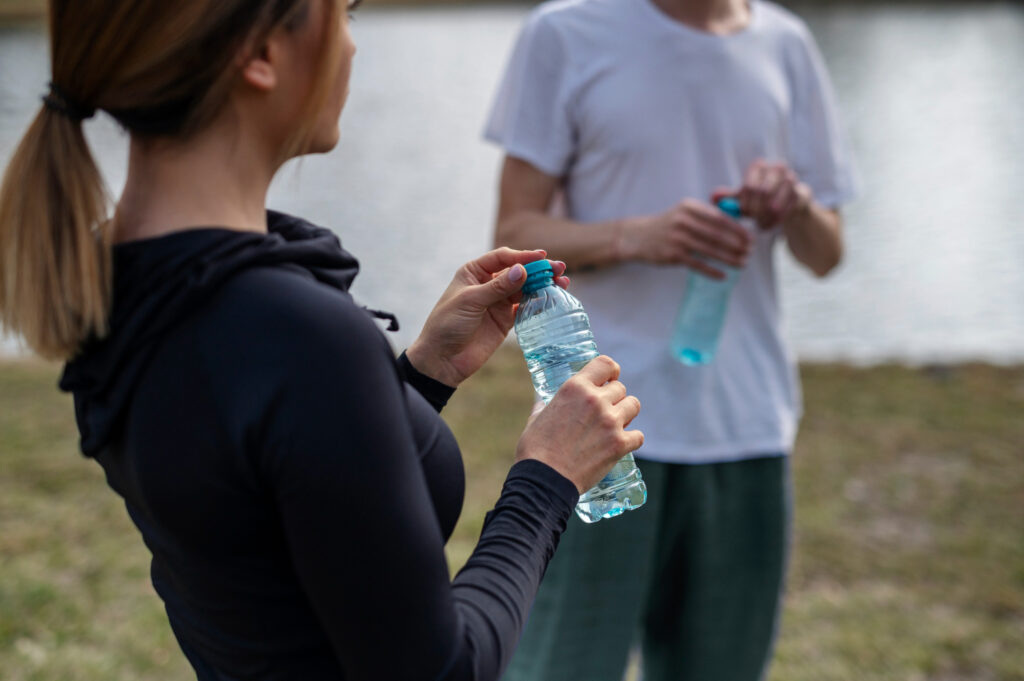
Fast Facts
Replacing fluids lost through sweat is crucial for exercise performance
Water is the best fluid for hydration
Dehydration can cause fatigue, cognitive impairment, and reduced athletic performance
Signs of dehydration include dark urine, lack of sweat, and dry mouth
Calculate your sweat rate to tailor your hydration strategy.
Maintaining adequate hydration during exercise is crucial. Replacing fluids lost through sweat is vital, and the best fluid for this purpose is water. When your body is dehydrated, both your mind and body cannot function at their peak. Indicators of dehydration include darker urine and a lack of sweat during physical activity.
Consequences of Inadequate Hydration
Not drinking enough fluids can lead to several issues:
- Increased Body Temperature and Heart Rate: Without sufficient hydration, your body struggles to regulate heat.
- Fatigue: Dehydration can make you feel more tired than usual.
- Cognitive Impairment: Your ability to think clearly, make decisions, and concentrate can be affected.
- Slowed Bodily Functions: This includes slower gastric emptying, leading to stomach discomfort.
- Reduced Athletic Performance: This is especially true in hot conditions when dehydration worsens.
Hydration Strategy
To maintain peak performance, make fluid replacement a priority during physical activity. Adequate hydration helps to sustain concentration, enhance endurance, and prevent excessive increases in heart rate and body temperature.
Understanding Hydration Needs
Hydration requirements vary based on several factors, including climate, health status, clothing, exercise intensity, and duration. You may need more fluids if you:
- Sweat heavily
- Have medical conditions like diabetes or heart disease
- Have cystic fibrosis, leading to high sodium concentration in sweat
- Use medications that act as diuretics
- Have a larger body size
- Are physically fit (fit individuals tend to sweat more)
- Engage in vigorous exercise
- Exercise in hot or humid conditions
Signs and Symptoms of Dehydration
Common indicators of dehydration include:
- Headaches
- Fatigue
- Mood changes
- Slow reaction times
- Dry nasal passages
- Dry or cracked lips
- Dark-colored urine
- Muscle cramps
- Weakness
- Confusion
- Hallucinations
If you experience any of these symptoms, increase your fluid intake. A fluid loss equivalent to 2% of body mass can decrease performance, and greater losses can cause gastrointestinal issues like nausea and diarrhea.
The Role of Sweat and Hydration
Sweating is the body’s way of regulating temperature during exercise, but it also leads to fluid loss. Drinking fluids during exercise is essential to replace this loss, reduce heat stress, and maintain normal bodily functions and performance levels.
Calculating Your Sweat Rate
Knowing your sweat rate can help you manage hydration effectively:
- Pre-Exercise: Empty your bladder and weigh yourself in minimal clothing.
- Record Ambient Temperature: Note the temperature during your exercise session.
- Exercise: Perform your exercise as usual.
- Track Fluid Intake: Record how much fluid you consume during exercise.
- Estimate Urine Loss: If possible, measure any urine loss during exercise.
- Post-Exercise: Weigh yourself again, wearing the same clothing and after toweling off excess sweat.
Optimal Hydration Choices
- Water: The best choice for hydration, as it is natural, free, calorie-free, and contains fluoride, which is beneficial for teeth.
- Sports Drinks: Containing electrolytes and carbohydrates, these can be useful for activities lasting more than 60 minutes at moderate to vigorous intensity. However, they are often high in sugar and should be consumed only when necessary.
- Fruits and Vegetables: Many fruits and vegetables have high water content and can aid in fluid replacement.
Fluids to Avoid During Exercise
- Sugary Drinks: Avoid cordials, soft drinks, and juices as they are high in carbohydrates and low in sodium.
- Caffeine: Can act as a diuretic, causing increased urine production and fluid loss.
Post-Exercise Hydration

After exercising, aim to drink 1.5 times the amount of fluid lost during your workout, spread over the next 2-6 hours. This helps compensate for continued fluid loss through sweat and urination after the exercise session ends.
Tips and Insights
- Personalization: Adjust your hydration strategy based on individual needs and environmental conditions.
- Professional Advice: Athletes should seek guidance from health professionals for personalized fluid replacement plans.
- Thirst Indicator: Thirst is not the best indicator of hydration needs; a good gauge is urine color—pale and clear indicates good hydration.
By maintaining proper hydration, you can enhance your physical and mental performance, avoid the adverse effects of dehydration, and ensure your body functions optimally during and after exercise
A Quick Review
Hydration is vital for maintaining optimal exercise performance and overall health. Water is the best fluid for replacing sweat losses during exercise, while signs of dehydration include dark urine and lack of sweat. Calculate your sweat rate by weighing yourself before and after exercise and adjusting your fluid intake accordingly. Avoid sugary and caffeinated drinks during exercise and opt for water or sports drinks when needed. Stay hydrated to enhance your endurance, concentration, and performance.











